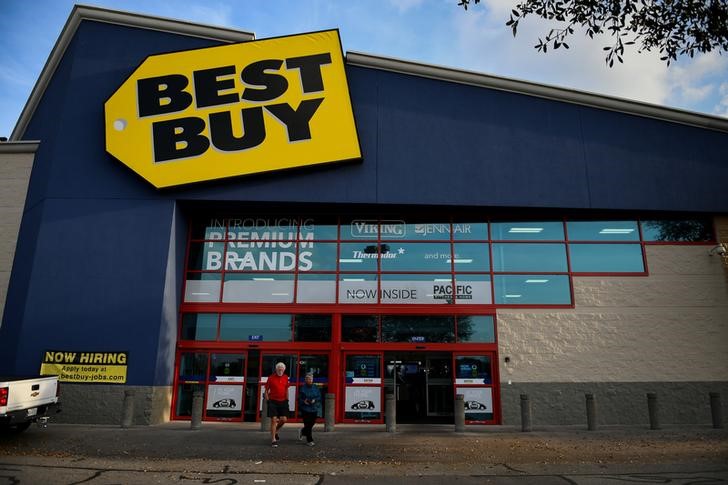Bitcoin price today: falls to 2-week low below $113k ahead of Fed Jackson Hole
RICHFIELD, MN—Jason J. Bonfig, Senior Executive Vice President at Best Buy Co. Inc. (NYSE:BBY), a prominent specialty retail company with a market capitalization of $15.85 billion, recently sold a portion of his holdings in the company. According to a recent SEC filing, Bonfig sold 4,867 shares of Best Buy common stock on March 21, 2025, at an average price of $72.647 per share, totaling approximately $353,572.
Following this transaction, Bonfig retains direct ownership of 60,147 shares. Additionally, he holds 3,848 shares indirectly through a 401(k) plan. The sale was executed to cover tax withholding obligations upon the vesting of restricted shares, as noted in the filing. The stock has declined 23.62% over the past six months, though InvestingPro analysis suggests the shares are currently undervalued.
Investors often watch insider transactions closely, as they can provide insight into an executive’s perspective on the company’s future performance. However, it’s important to note that this particular transaction was not discretionary, as it was conducted to fulfill tax obligations. Best Buy maintains strong financial health with a GOOD rating from InvestingPro, which offers comprehensive analysis and 10 additional key insights about the company’s performance and outlook.
In other recent news, Best Buy’s financial performance and future outlook have garnered mixed reactions from several analyst firms. DA Davidson reaffirmed its Buy rating for Best Buy, maintaining a price target of $110, citing stronger-than-expected fourth-quarter sales and improved profit margins driven by membership, marketplace, and media initiatives. However, UBS adjusted its price target for Best Buy to $105 from $115, maintaining a Buy rating while expressing concerns about the impact of tariffs and the company’s guidance on sales improvements. Truist Securities took a more cautious approach, lowering its price target to $81 and maintaining a Hold rating due to economic challenges and tariff uncertainties, which could affect Best Buy’s earnings.
Meanwhile, Loop Capital also reduced its price target to $90, despite exceeding earnings expectations for the fiscal fourth quarter. The firm maintained a Buy rating, noting that the market had already factored in the risks associated with tariffs from China and Mexico. Analysts highlighted the potential impact of a 10% tariff on Chinese imports, which could negatively affect Best Buy’s comparable store sales by about 1 percentage point. Additionally, the potential for further tariffs could lead to more significant financial impacts.
Despite these challenges, some analysts remain optimistic about Best Buy’s strategic initiatives and market position. The company’s resilience and operational strength were noted as positive indicators amid the complex retail environment. Investors are advised to keep an eye on how Best Buy navigates the evolving tariff situation and its impact on the company’s sourcing strategy and financial outcomes.
This article was generated with the support of AI and reviewed by an editor. For more information see our T&C.
